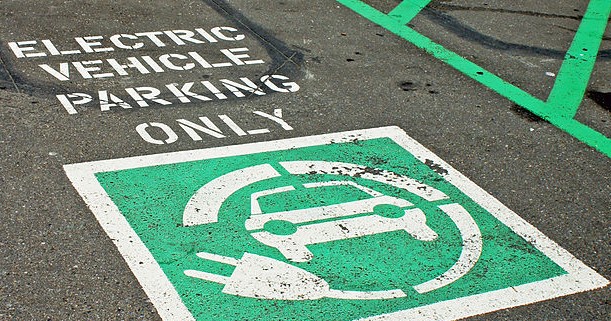
Electrics twice as clean as gas vehicles ‘from cradle to grave,’ report says
by Cleantech Canada Staff

Study shows from manufacturing, to the road and disposal, EVs reduce gas cars' emissions more than 50 per cent

The new report finds battery electrics have clear emissions benefits over gas-powered vehicles, despite higher emissions at some stages of their lives. PHOTO: Mariordo, via Wikimedia Commons
BOSTON—Decades of streamlining manufacturing processes for gas-powered cars and cutting down on the fossil fuel-burners’ on-road emissions is not enough to outweigh electric vehicles’ inherent greenhouse gas-reducing characteristics, according to a new report.
Gas vehicle proponents have long alleged the higher emissions battery electrics rack up in the manufacturing and disposal process negate the clear advantage EVs have over gas cars when it comes to on-road emissions. The science advocacy organization, Union of Concerned Scientists, however, begs to differ.
“On average, BEVs representative of those sold today produce less than half the global warming emissions of comparable gasoline-powered vehicles, even when the higher emissions associated with BEV manufacturing are taken into consideration,” the report says.
Across the U.S., the report notes the average EV produces global warming emissions equal to a gasoline vehicle that would be capable of running at 68 miles per gallon of gas, and for many regions the miles would be significantly higher. New York State leads the pack in this measure, requiring a vehicle with 135 MPG to match the average EV in emissions.
Largely a measure of how clean the electricity is across the U.S., BEVs carbon footprint will continue to decline as worldwide electricity grids shed carbon.
Where gas vehicles do beat out BEVs is in the manufacturing process.
“Under the average U.S. electricity grid mix, we found that producing a midsize, midrange (84 miles per charge) BEV typically adds a little over 1 ton of emissions to the total manufacturing emissions, resulting in 15 percent greater emissions than in manufacturing a similar gasoline vehicle,” the report says.
Gas vehicles’ manufacturing windfall is often quickly overcome by on-road performance though. The report found excess manufacturing emissions are usually offset within six to 16 months of driving.
At the disposal stage, gas and battery electric vehicles fare virtually identically, the large lithium battery of electrics being the lone exception. The recycling process is not significant enough to make a notable change in lifetime emissions, however.
“Electric vehicles provide benefits both in carbon emissions and oil savings, with the greatest emissions benefits occurring in regions with the lowest-carbon electricity sources,” the report said.
In order to reach their full potential, the study’s authors said EVs must become a larger part of vehicle sales and countries’ electricity grids must continue to shift from coal to low-carbon renewable sources.